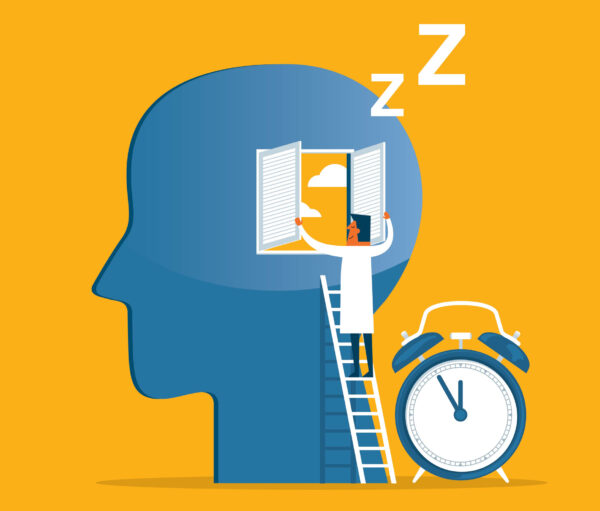6 Ways Seniors Can Improve their Sleep ‘Hygiene’

Sleep is a vital process during which the body undergoes several significant changes that are crucial for physical health and cognitive function. In older adults, these processes are particularly important due to the increased vulnerability to health issues.
As we sleep, the brain cycles through various stages, including deep sleep and REM (rapid eye movement) sleep. During these stages, the brain consolidates memories and processes information from the day. For older adults, this is important for maintaining cognitive health and memory sharpness.
Research indicates that during deep sleep, the brain clears out toxins and waste products that can contribute to neurodegenerative diseases such as Alzheimer’s. This cleansing process is part of the brain’s restorative functions, helping to preserve its health and functionality.
Sleep triggers the release of hormones that help repair cells and control the body’s use of energy. These hormones are essential for muscle repair, bone growth, and overall physical recovery. Adequate sleep strengthens the immune system, which in turn helps fight off infections.
Risks of sleep deprivation
Not getting enough sleep can lead to a range of health and cognitive issues, particularly in older adults:
- Increased risk of chronic diseases: Adults who don’t get enough sleep are at higher risk for heart disease, diabetes, and obesity.
- Cognitive impairment: Sleep can affect cognition, affecting the person’s concentration, decision making, and memory.
- Mood disorders: Chronic lack of sleep is associated with an increased risk of depression and anxiety.
- Weakened immunity: Without adequate sleep, the immune system’s ability to respond effectively is diminished, leading to increased susceptibility to illnesses.
Tips for improving sleep hygiene
Sleep hygiene refers to the steps we take to prepare for a good night’s sleep. Improving sleep hygiene can significantly enhance the quality and duration of sleep, especially for older adults. Here are some effective strategies:
Maintain a consistent sleep schedule: Go to bed and wake up at the same time every day, even on weekends. Consistency reinforces your body’s sleep-wake cycle.
Optimize your sleep environment: Ensure your bedroom is conducive to sleep. It should be quiet, dark, and at a comfortable temperature—not too warm or too cool. Invest in a good quality mattress and pillows that support a comfortable sleeping posture. Try to use your bedroom only for sleeping, so your brain gets the message that sleep happens there.
Limit exposure to blue light: The blue light emitted from TVs, smartphones, and computers can disrupt melatonin production, making it harder to fall asleep. So put that smartphone down! Avoid screens at least an hour before bed and leave your electronics to charge somewhere away from your bed.
Practice mindful eating and drinking: Avoid heavy meals, caffeine, and alcohol before bedtime, as they can disrupt sleep. You may feel that a nightcap helps you get tired, but in reality alcohol disrupts the sleep cycle and may cause you to wake up in the night.
Try relaxation techniques: Do something calming such as reading, taking a warm bath, or practicing meditation or deep breathing exercises before bedtime.
Engage in physical activity: Regular physical activity can help you fall asleep faster and enjoy deeper sleep. However, avoid exercising close to bedtime. Try to get your daily exercise in at least three hours before you go to bed.
If sleep problems persist, it may be helpful to consult with a healthcare provider to rule out sleep disorders, medications, or other medical conditions that might be affecting sleep. For older adults and their family members, understanding and prioritizing sleep hygiene can lead to significant health benefits. Sleep is not just a period of rest, but a critical part of staying healthy that is essential for physical restoration, mental health, and overall quality of life. By adopting practices that promote good sleep, older adults can improve their vitality and enjoy a more active, healthful life.
This article is not intended to replace the advice of your healthcare provider.


